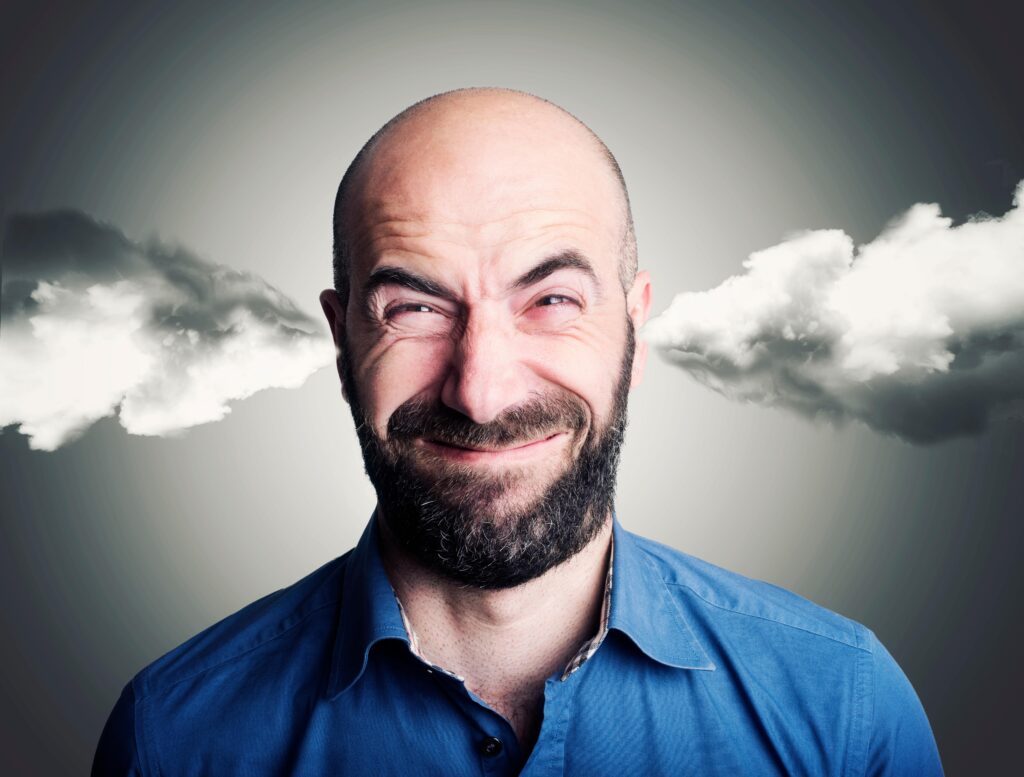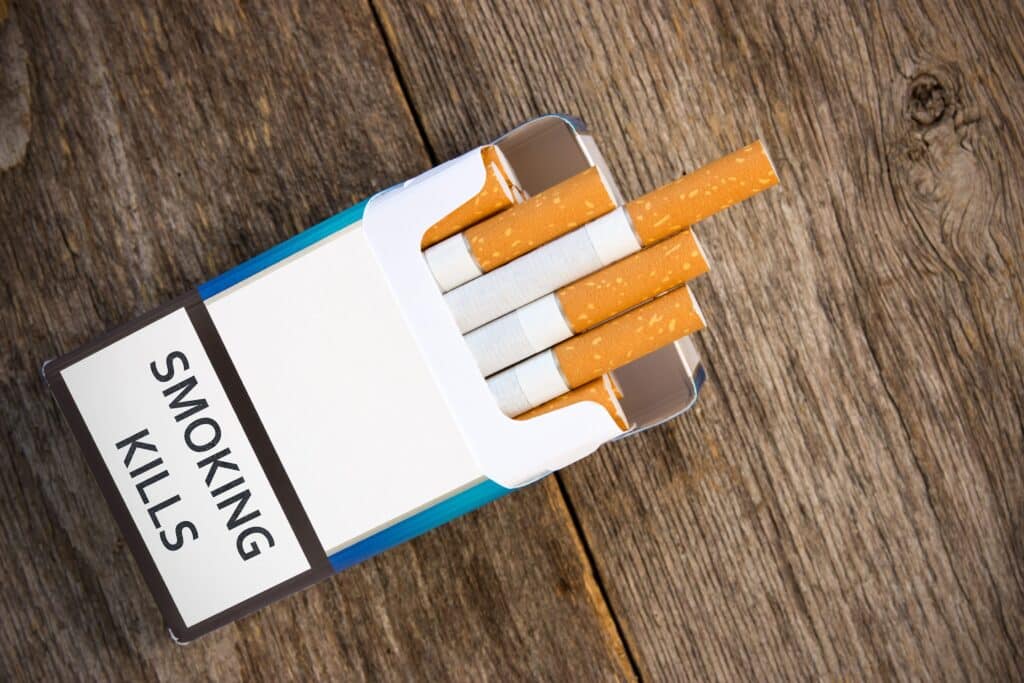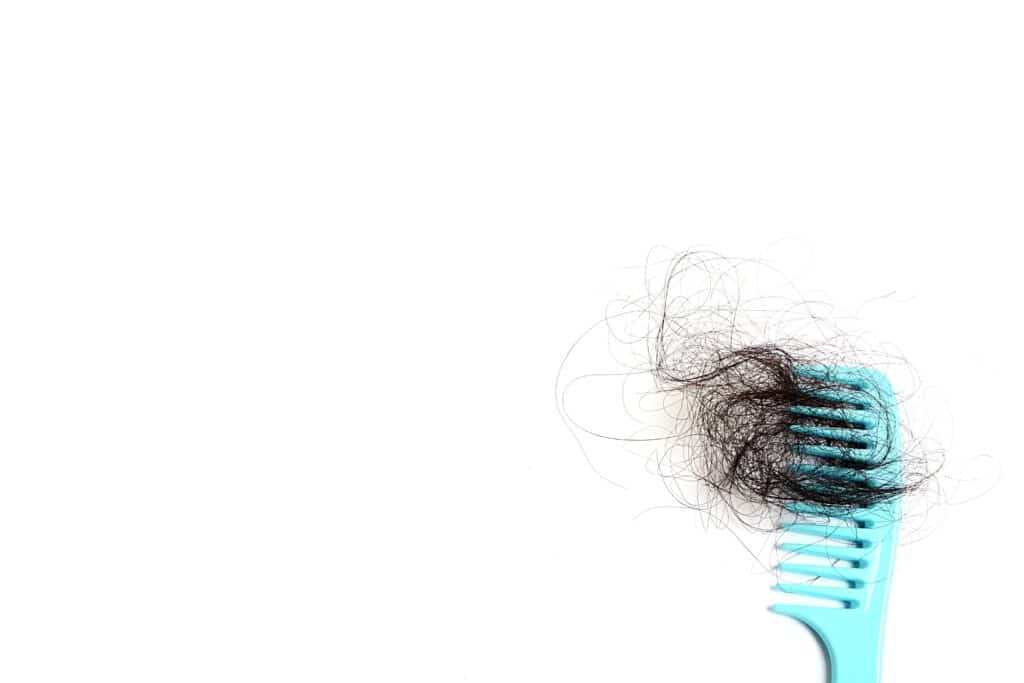Does smoking cause hair loss? Scientists, smokers, and hair loss patients have actively debated this question, discussing the potential link between smoking and hair loss. Some people argue there’s no correlation between smoking and hair loss, but there has been extensive research and several case studies to dispute this claim.
In this article, we’ll discuss and answer the popular questions, “How does smoking cause hair loss?” and “why does smoking cause hair loss?” We’ll also reveal the possible remedies for hair loss caused by smoking.
What Does Smoking Do to Your Hair?

The side effects of smoking go beyond lung cancer and respiratory illness: smoking can also affect hair health in many ways. Due to the multiple ways smoking affects the hair follicles, it can ultimately lead to hair loss. If you’ve always wondered how smoking causes hair loss, here’s your answer.
Firstly, smoking causes oxidative stress and reduces blood flow to the hair follicles. Since hair follicle cells are sensitive to oxidative stress, hair loss may begin when stress levels rise. Also, the toxic chemicals in tobacco and cigarette choke up the blood vessels responsible for delivering oxygen and nutrients to the hair follicles. Impaired blood flow increases the potential for hair damage or loss.
Secondly, the nicotine in cigarettes and tobacco causes microinflammation of hair follicles and desensitization of receptors. This ultimately leads to hair follicle death.
Thirdly, smoking can cause significant damage to your immune system. Such conditions may lead to illnesses causing hair loss and elevate the risk of bacterial or fungal scalp infections. Cases of hair loss including bacterial infection are usually very tough to treat.
In addition, smoking can be responsible for early onset androgenetic alopecia, as well as early onset of grey hair. In summary, why does smoking cause hair loss? It’s because of the nicotine and toxic chemicals in cigarettes and tobacco.
How Many Cigarettes a Day Can Cause Hair Loss?

There’s no precise number here. But studies have shown that smokers almost always have an increased severity of male pattern baldness compared to non-smokers. One study by Mosley and Gibbs in the UK observed two identical male twins: one was a heavy smoker, while the other was a non-smoker. It was discovered that smoking caused hair loss and balding in the twin who was addicted to cigarettes, while the other twin had healthy hair.
Another significant study by Fortes et al. from Italy showed that heavy smokers who smoked at least ten cigarettes per day had an increased risk of severe alopecia.
So based on this, it’s safe to conclude that all smokers will likely suffer hair loss, but the severity of your hair loss condition will depend on how extreme your smoking habits are.
Will My Hair Grow Back After I Quit Smoking?

After you quit smoking, your body will indeed heal itself. For instance, the damage to your lungs slowly reverses. However, on the issue of hair loss, there is no medical proof that quitting smoking can restore your lost hair.
Although smokers who suffer from thinning hair will definitely get back healthy hair after quitting smoking, the same cannot be said for those who developed male pattern baldness. At most, the hair will become full, thick, and oily again, but the lost hair follicles will not grow back. Certain treatments will have to be done to regrow the lost hair.
How Can I Recover My Hair from Smoking?

Quit Smoking Completely
First, you’ll have to quit altogether. You’ll never see significant hair recovery/restoration if you quit for a short while (say six months to one year). Only if you can “stay clean” for at least five years or more will your hair bounce back to life and your hair growth cycle be restored.
Also, most smokers who quit cigarette smoking take up vaping as an alternative. This isn’t advised, as vape juice also contains nicotine, which is bad for the human immune system and hair. Although there’s no proven theory that vaping can cause androgenetic alopecia, it’s best for patients to stay off nicotine altogether. You can try some prescription drugs or therapies to help you reduce your cravings and break free of the addiction.
Use Hair Regrowth Medication
You can boost regrowth to significant levels by applying hair-regrowth chemicals. A good example of such a medication is Minoxidil. However, whichever medication you use, it’s best to consult a physician first and follow instructions strictly as directed. Bear in mind that Minoxidil or hair supplements do not work for everyone.
Get a Hair Transplant
This is the best and most efficient way to regain lost hair caused by cigarette smoking. Once you quit smoking for a significant amount of time, you should notice the signs of hair loss (like hair thinning) slowly reversed. Eventually, you’ll have thick and healthy hair worthy of a hair transplant in Turkey. At this stage, it’s best to undergo hair transplant surgery to fill up the bald areas on your scalp.
One thing to remember, though, is that scalps are particularly sensitive to oxidative stress. So, you should not smoke or even vape after a hair transplant surgery: You’ll simply hinder the growth of the newly transplanted follicles, ruining the entire hair transplant operation.
